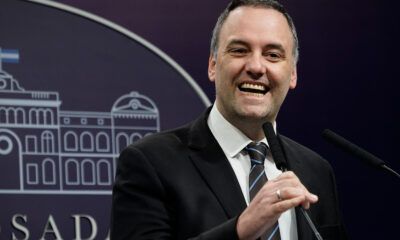INTERNACIONAL
GOP senators blast Biden admin moves in Africa as Russia looks to fill vacuum
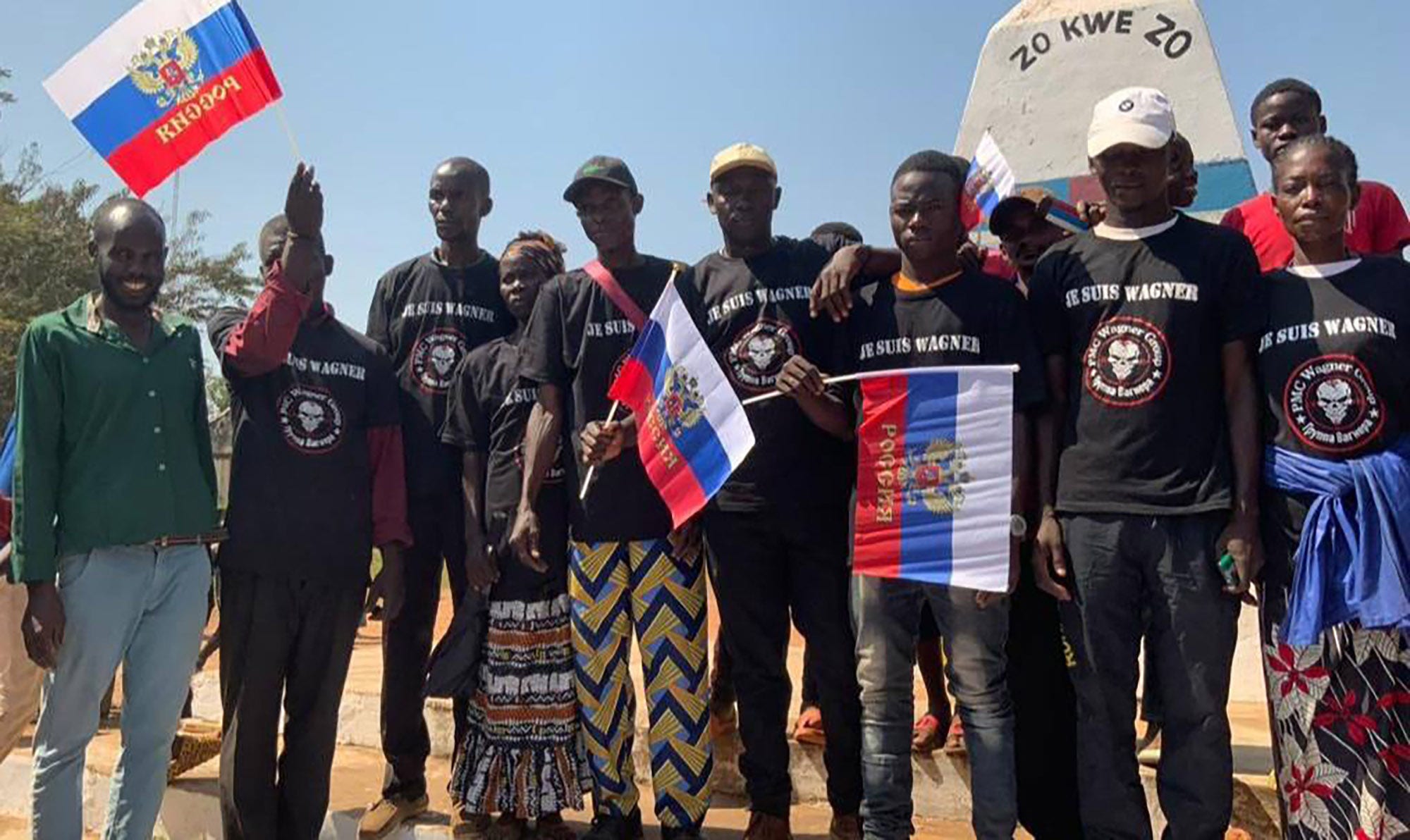
JOHANNESBURG – With two West African countries in the sprawling Sahel region leaning heavily toward Moscow, telling U.S. forces battling Islamist terror activity to get out and letting Russian mercenary forces in, leading GOP Senators have struck out against the Biden administration’s foreign policy, with one calling it a «disaster.»
«President Biden’s foreign policy has been a disaster on every continent, and Africa is no exception,» Sen. Tim Scott, R-S.C., told Fox News Digital.
The senator continued, «While the Russians and Chinese are working overtime to oust the U.S. from a region that will soon be home to a quarter of the earth’s population, the Biden Administration continues to fumble the ball and weaken our nation’s strategic interests with our African partners.»
Scott added, «It’s crystal clear that the outcome of the November election will have massive consequences, not only on whether Americans continue putting up with Bidenomics and the rising costs of getting gas and groceries, but on our nation’s diminishing global standing as well.»
US TO PULL TROOPS FROM CHAD AND NIGER AS THE AFRICAN NATIONS QUESTION ITS COUNTERTERRORISM ROLE
People stand next to Russian and Niger flags while hundreds of supporters of the coup gather in front of the National Assembly in Niamey, Niger, on July 27, 2023. (Reuters/Balima Boureima)
Niger’s military junta has told 1,000 U.S. military service members and contractors to leave town – while permitting Russian Wagner mercenaries to move onto the same airbase housing American personnel. Some of the 100 U.S. service members in Chad have also been told to get out.
Particularly in West Africa, Russia is gaining influence, often claimed at America’s expense.
The head of the U.S. Africa Command, Marine Corps Gen. Michael E. Langley, stated recently that terrorism is shattering African lives and plants «the seeds of violent extremism and Russian exploitation across entire regions of the continent.»
Sen. James Risch, R-Idaho., told Fox News Digital, «The U.S. isn’t fighting for influence in Africa, but despite its efforts, Russia isn’t winning over most Africans.» Risch, ranking member on the Senate Foreign Relations Committee, added, «Simplifying the current situation in this way gives too much credit to Russia and other bad actors who are exploiting economic, political, and security challenges for their own gain. Despite this administration’s soaring rhetoric about its successes in Africa, the continent is not a top foreign policy focus – the administration’s actions, budgets, and policies demonstrate that.»
He continued, «The U.S. has the power to swiftly reverse the current trend of African nations favoring anti-Western views. By taking stronger policy actions in partnership with the African people, we can make a significant and immediate impact, and reverse these trends.»
«America has now effectively been pushed out of Chad, Niger, Mali and Burkina Faso, making more room for Russia and China,» Senate Minority Leader Senate Minority Leader Mitch McConnell, R-Ky., told the Senate on May 2. «The administration behaves more like an ostrich than a superpower for two years.»
RUSSIA AND US JOCKEY FOR SUPPORT ACROSS AFRICA
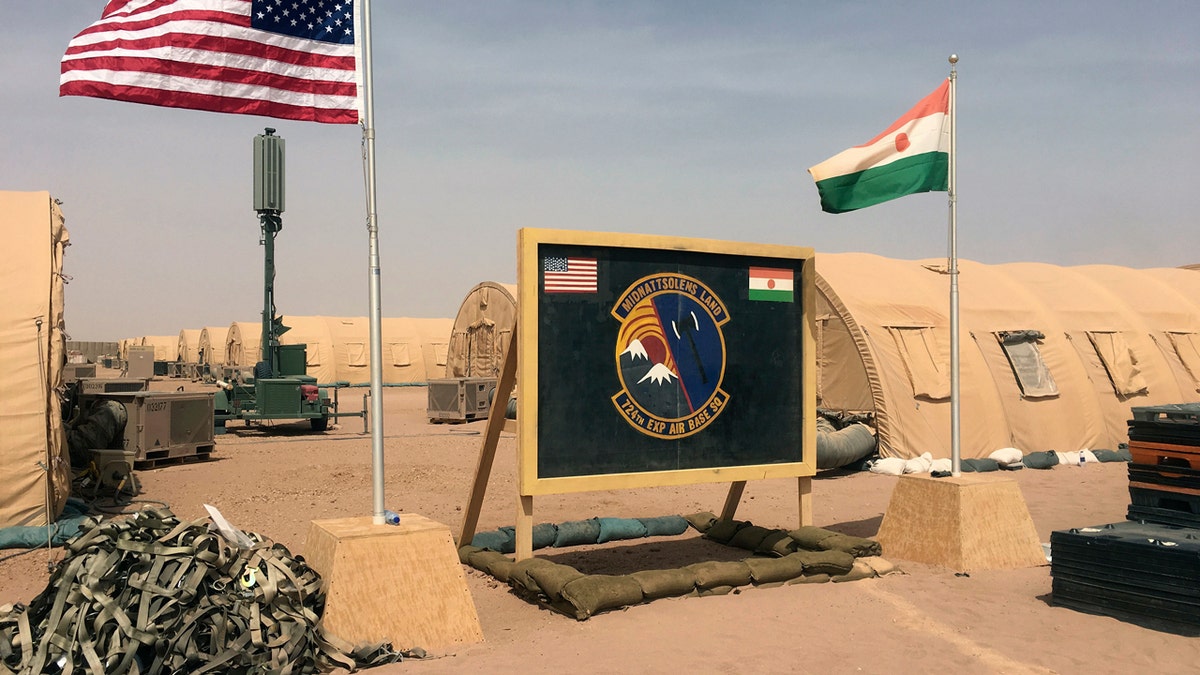
The U.S. and Niger flags are raised side by side at the base camp for air forces and other personnel supporting the construction of Niger Air Base 201 in Agadez, Niger, April 16, 2018. The United States is attempting to create a new military agreement with Niger that would allow it to remain in the country, weeks after the junta said its presence was no longer justified, two Western officials told The Associated Press on Friday April 19, 2024. (AP Photo/Carley Petesch)
Looking at the 54 countries which make up the African continent, a State Department spokesperson told Fox News Digital «Secretary Blinken has been clear about the United States’ commitment to deepen and expand our partnerships between the United States and African countries, institutions, and people. The United States’ strategy towards Africa is based on the belief that democracy and good governance, development, and stability are inter-linked. Together with our regional partners, we are committed to working with African countries to promote democracy, foster sustainable development, combat terrorism, and enhance security.»
«We remain concerned by the increase in violence and worsening humanitarian trends across the Sahel region. The only long-term solution to the scourge of terrorism is delivering good governance based on the rule of law, respect for human rights, and promotion of social cohesion. Overreliance on military-only approaches to instability and insufficient efforts to protect civilians from human rights abuses and violations, will only further entrench structural drivers of instability.»
Washington has declared publicly that it will pull forces out of Niger, but the 1,000 personnel are still there, with a State Department spokesperson telling Fox News Digital last week that officials «are engaged in frank discussions with the authorities in Niger.»
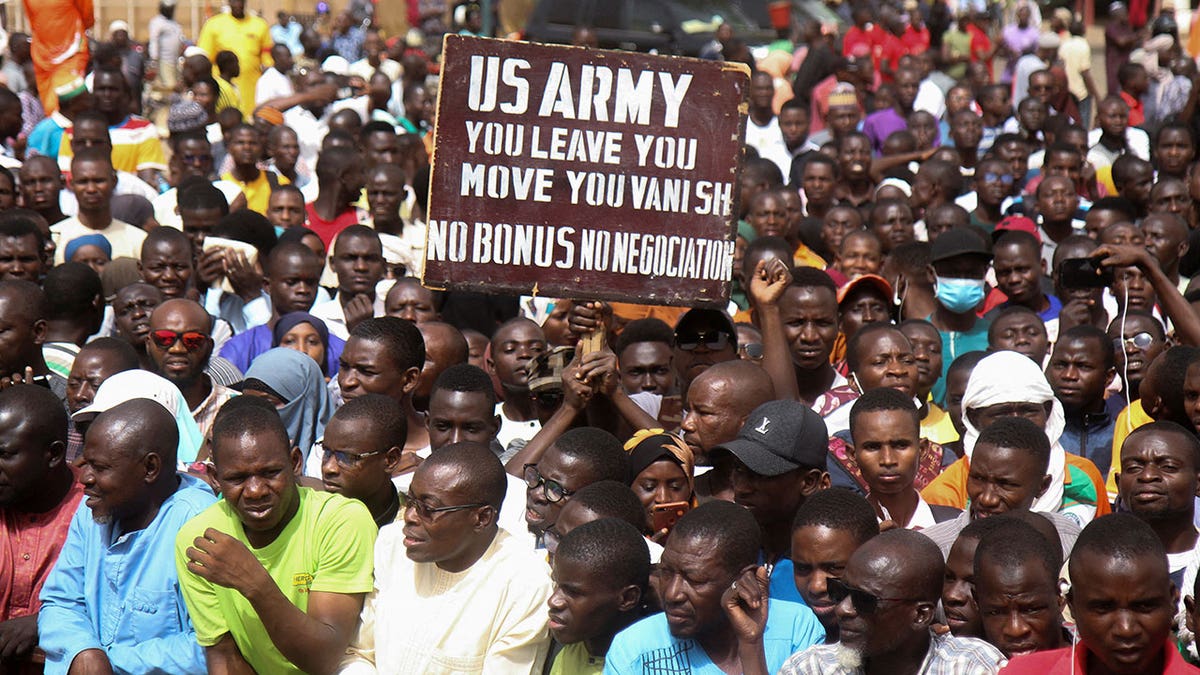
Nigeriens gather in a street to protest against the U.S. military presence in Niamey, Niger April 13, 2024. (REUTERS/Mahamadou Hamidou/File Photo)
During Tuesday’s State Department briefing, spokesman Vedant Patel told reporters that in discussions with Niger’s new government (CNSP), «We have not been able to come to an understanding that would allow the United States to maintain its military presence in Niger, and we’re currently working with the CNSP to withdraw U.S. forces in an orderly and responsible fashion.»
The U.S. troops are being used as «pawns» by Washington, in order to try and get military and medivac overflight permission in Niger, Rep. Matt Gaetz, R-Fla., claimed in statements provided by his office to Fox News Digital. «Today, more than a thousand personnel have not been sufficiently resupplied since March following the coup.»
CHAD’S MILITARY LEADER WINS DISPUTED PRESIDENTIAL ELECTION
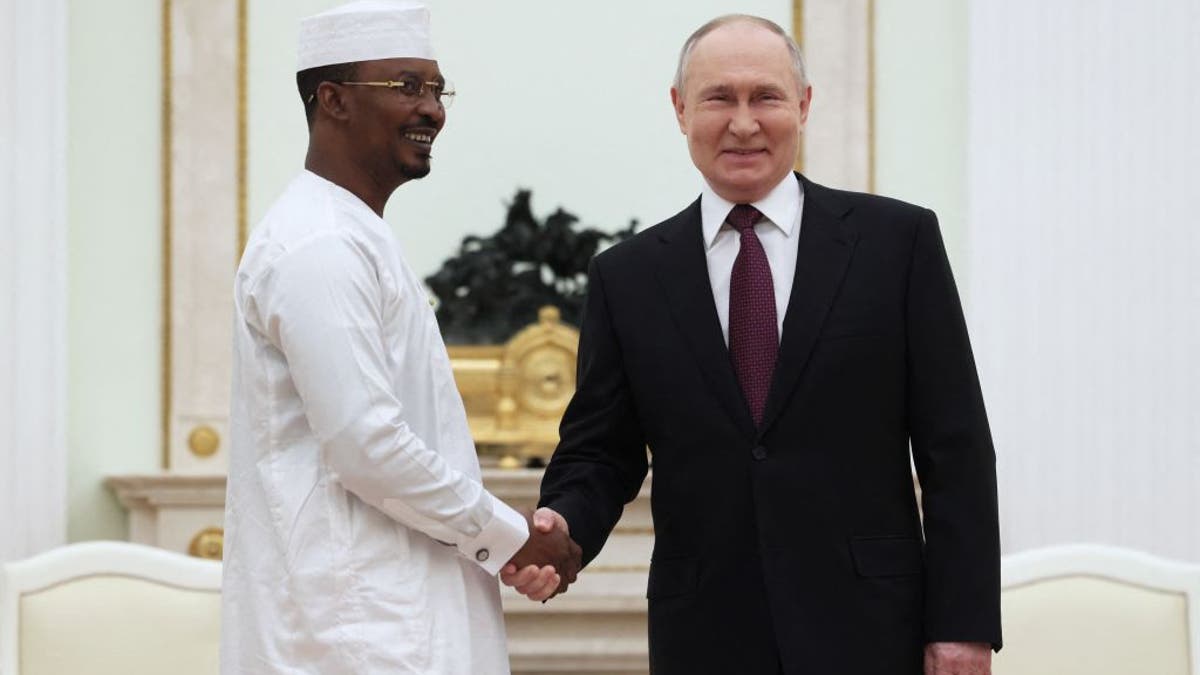
Russian President Vladimir Putin, right, meets with Chad’s Transitional President Brice Mahamat Idriss Deby at the Kremlin in Moscow on Jan. 24, 2024. (Photo by MIKHAIL METZEL/POOL/AFP via Getty Images)
Gaetz continued, «Biden has two choices: resupply our troops or bring them home ASAP. The notion that we are allowing third world thugs – who we trained – to dictate terms on the well-being of American troops is a furtherance of the Biden foreign policy disgrace.»
Controversy is also next door in Chad, with the military junta there saying they want the U.S. military out of their country. Washington has had around 100 personnel fighting terrorism stationed there. Some were pulled out during last week’s presidential elections, but sources suggest this withdrawal is «temporary.»
Enter the Kremlin. Niger has, in contrast, welcomed up to 100 military personnel thought to be mercenaries from the Wagner group to set up shop for operations out of a hangar on the same airbase 101 housing U.S. personnel.
The potential departure of U.S. forces from Niger and Chad is «a win for Putin,» said Rebekah Koffler, strategic military intelligence analyst and Foreign Affairs Consultant for Fox News Digital. «Any military hardware that’s left will be picked up by the Russians who are always on the hunt for U.S. weapons dropped on the battlefield or abandoned at military bases. Those combat systems will be acquired, inspected, and either reverse engineered or countermeasures will be built within Russian weapons systems to mitigate the effectiveness of U.S. arms.»
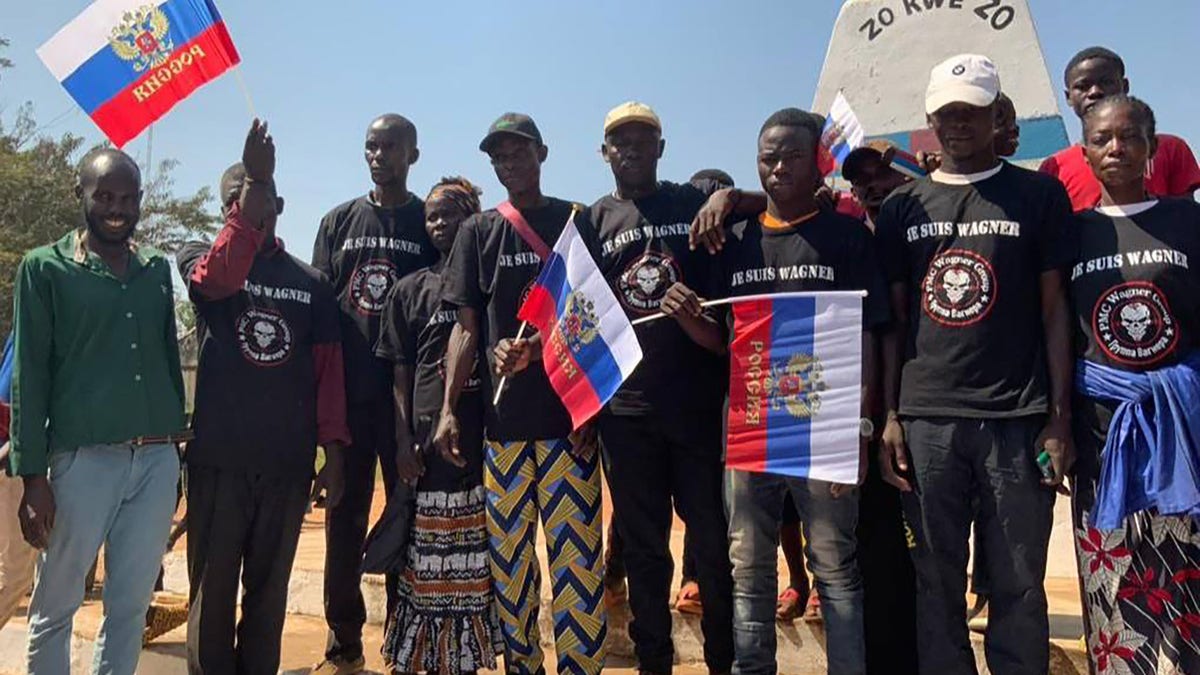
Marchers gather in support of Wagner PMC in Kaga-Bandoro, Central African Republic, in December 2023. (East2West)
«The United States clearly faces challenges in maintaining its position in West Africa,» Gustavo de Carvalho, senior researcher for African Governance and Diplomacy at the South African Institute of International Affairs, told Fox News Digital. «But it is somehow a chicken and an egg dilemma. Are Russia and China actively working to replace the West, or is the West losing influence while China and Russia fill the gap?
«In the West African case,» de Carvalho added. «I believe this is more a case of the West losing influence and Russia filling a specific security demand gap. The relationship between Western countries and Sahelian governments became so fractured recently that Russia took advantage of the void left behind.»
Koffler said Russia’s strategic goals are clear. «To expand its footprint in Africa, in order to outcompete the U.S. there, reduce the US/Western influence and to compete with China. It’s part of Putin’s vision of a ‘multipolar world.’»
The Kremlin, Koffler added, has a «clever» diplomatic goal too, with it trying to get more African countries to vote in support of Russia at the U.N. «Africa has a big voting block within the United Nations,» Koffler said. «So Moscow wants to predispose those governments towards Russia’s policy agenda, so they can vote in Russia’s interests, not Western interests. Many African countries already feel that their voices in international organizations are not heard. And Russia capitalizes on those anti-Western sentiments.»
JIHADIST AND NUCLEAR THREAT AS AFRICAN COUNTRY TELLS US TO LEAVE AMID RUSSIAN AND IRANIAN GAINS

Wagner mercenaries in Mali in December 2023. (East2West)
De Carvalho agreed that Africa is becoming higher on the agenda of priorities for Russian foreign policy. «They have so far been able to exploit years of reduced interest in Africa by Western Countries, including the U.S., benefiting from the fact that Western narratives and motivations are increasingly seen with distrust.»
Enter China. Koffler declared this week, «From the economic standpoint, the U.S. is not losing the battle for Africa to Russia, but it is losing it to China.» Koffler claimed China, with its belt and road trade initiative, has $254 billion worth of trade with Africa annually, whereas the U.S. has $64 billion, and Russia only $18 billion.
De Carvalho stressed that China’s aims are not military, but «it is essential to note that China’s presence does not necessarily equate to dominance. China tends to be more interested in securing financial benefits and market access, rather than using its influence as a direct tool for Western containment.»
De Carvalho pointed out that he believes Washington needs to change its focus – not what it sees, but how it sees it. He said, «If the U.S. wants to increase its influence, it needs to approach Africa on its own merits, not solely as a means to counter the role of China and Russia. Africa has a long history of being used as a proxy in global disputes, and a narrative that reinforces that is indeed counterproductive. And that’s a challenge the U.S. needs to address.»
CLICK HERE TO GET THE FOX NEWS APP
«To address its own declining position, the US Administration should focus on building more genuine partnerships with African nations, prioritizing investments, economic development, security cooperation, and addressing shared challenges such as climate change and public health. They should engage with African countries as partners, not vehicles or proxies. But for that to happen, it would require a change in the narrative, approaches and action, making the continent a direct focus, not a terrain for geopolitical disputes.»
INTERNACIONAL
95 Libyan nationals arrested in South Africa at suspected secret military training camp
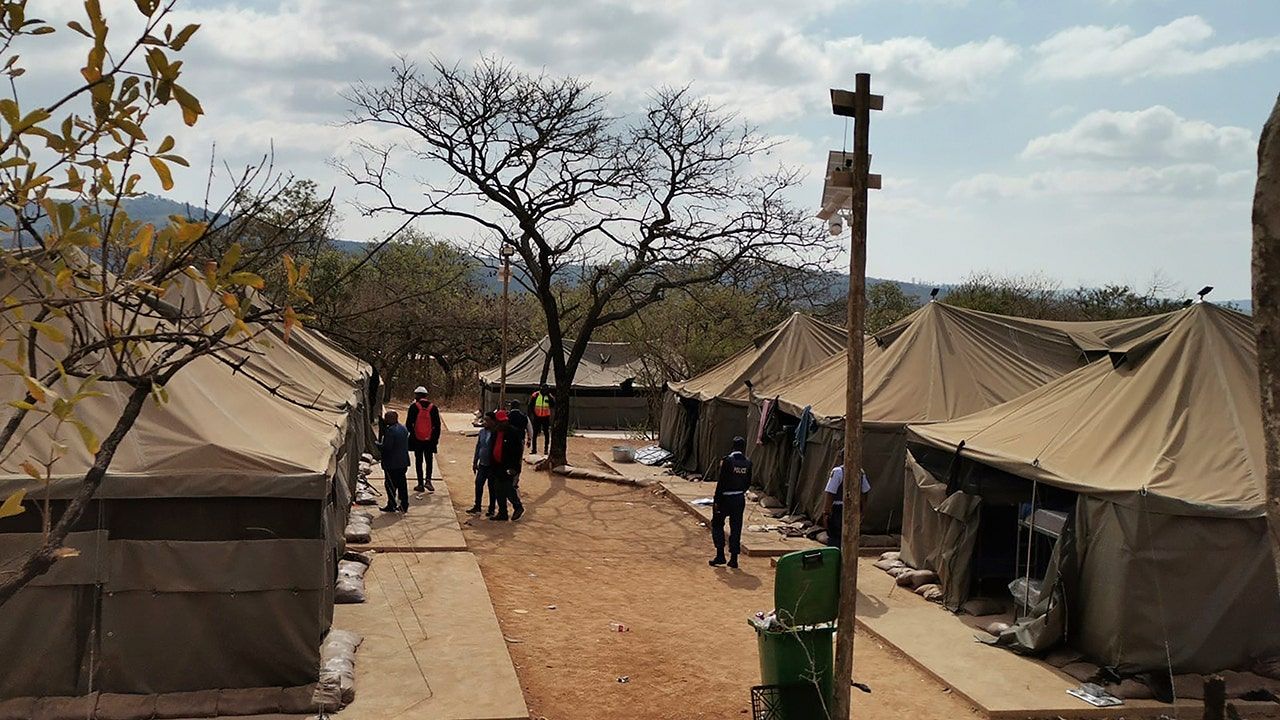
South African police arrested 95 Libyan nationals in a raid on a suspected secret military training camp on Friday and authorities said they were investigating whether there were more illegal bases in other parts of the country.
The camp was discovered at a farm in White River in the Mpumalanga province, about 360 kilometers (220 miles) northeast of Johannesburg, police said.
ELEPHANTS KILL TOURIST IN SOUTH AFRICA AFTER HE TRIED TO GET CLOSE TO TAKE PICTURES
National police spokesperson Athlenda Mathe said in a post on the social media site X that the Libyans stated they had entered the country on study visas to train as security guards, but police investigations suggest they have received military training.
The Newzroom Afrika TV news channel broadcast pictures of the site of the arrests, showing a military-style camp with large green and khaki tents set up in a row. Dozens of men were seen lining up as they were arrested. They were wearing civilian clothing.
Local government official Jackie Macie said investigations were ongoing and the owner of the farm would be questioned. He said authorities received information that there were similar secret camps near two other towns in Mpumalanga province.
A camp where 95 Libyan nationals were arrested on suspicion of running an illegal military camp are seen lining up after their arrest on Friday, July 26, 2024 in White River, South Africa. Police say that 95 Libyan nationals were arrested on suspicion of receiving training at a secret military camp in the north of the country. (AP Photo/Bulelwa Maphanga)
The province borders neighboring countries Mozambique and Swaziland and is an area of concern for South African authorities with regards to illegal immigration.
Police and authorities have not said whether the camps are suspected of being connected to a particular group or conflict.
Macie said investigations would establish if there was a network of camps in South Africa and show «why they are here doing military training in our country.»
Police said the men may be linked to crimes reported in communities close to the farm in recent months.
«We have serious cases which have been opened with the police, including cases of rape and armed robberies, which complainants claim were committed by unknown foreigners who seem to be of Asian descent,» said police spokesman Donald Mdhluli.
«We take what we have found here today very seriously because we don’t know who was training them, what were they being trained for and why that training is happening here in South Africa. It may be a threat not only to South Africa but also to the entire southern Africa region.»
Police said the operation to arrest the Libyans and close down the camp began two days ago. Macie said the Libyan nationals had been in the country since at least April.
«The 95 individuals taken into custody are all Libyan nationals and are currently being questioned by the relevant authorities,» Mpumalanga acting provincial police commissioner Maj. Gen. Zeph Mkhwanazi said in a statement.
CLICK HERE TO GET THE FOX NEWS APP
Mdhluli, the police spokesman, said the country’s security regulator had confirmed that the kind of training that appears to have been taking place at the camp was well beyond the scope of training for security guards.
«The kind of equipment we found here shows that there was intense military training taking place here. This was basically a military base.»
-
POLITICA3 días ago
Eliminan un programa de becas en Salud por supuesto uso discrecional: tenía un gasto de $1400 millones
-
POLITICA1 día ago
Más tensión en Cancillería: los embajadores preparan una carta a Mondino para frenar los cambios en Ganancias
-
POLITICA2 días ago
FMI: Georgieva se reunió con Caputo en el G20 de Río y habló sobre la inflación
-
POLITICA16 horas ago
Milei se reunió con Macron antes de la fiesta inaugural de los Juegos Olímpicos: hablaron de «estrechar lazos»
-
POLITICA2 días ago
La inesperada denuncia de Mascherano en los Juegos Olímpicos: “Nos robaron en el predio”
-
POLITICA18 horas ago
Milei afina los detalles del duro discurso que dará en La Rural: rechazará devaluar y bajar las retenciones



















